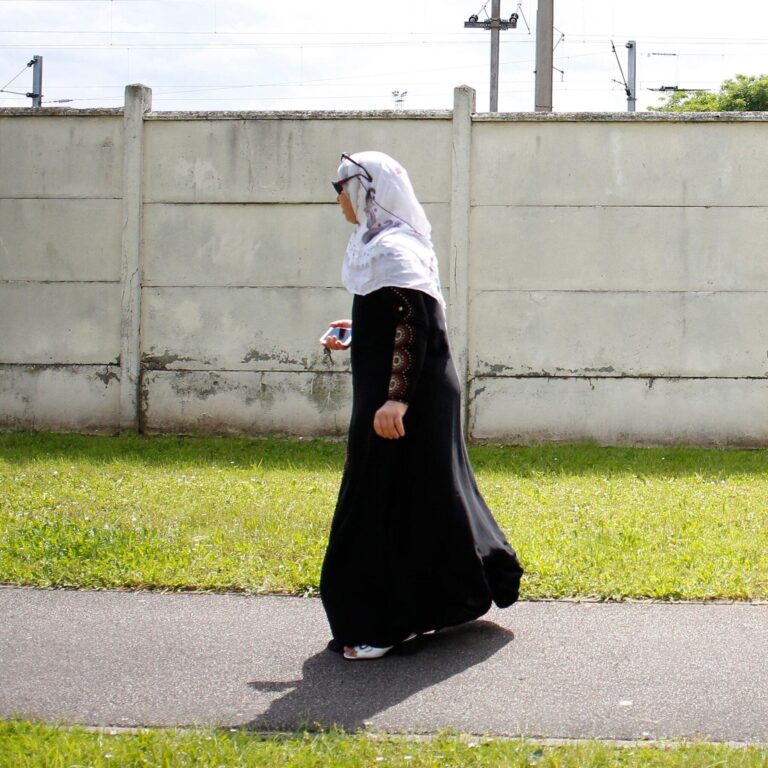France is set to enforce a ban on wearing the abaya, a traditional loose-fitting robe worn by some Muslim women, in schools, the country’s Education Minister announced. The move forms part of France’s ongoing efforts to uphold its secular principles within public institutions and comes amid broader debates over religious symbols in the classroom. The new policy is expected to spark discussions about religious expression, integration, and individual freedoms in one of Europe’s most diverse nations.
France Announces Prohibition of Abaya in Educational Institutions
In a move stirring significant public debate, the French government has officially announced a ban on the wearing of the abaya in all educational institutions across the country. The measure, spearheaded by the Minister of Education, aims to uphold the principles of secularism and ensure uniformity within schools. Officials argue that the prohibition is in line with existing laws that restrict overt religious symbols in public schools, emphasizing the importance of neutrality in educational environments.
The directive mandates school authorities to enforce the ban strictly, sparking reactions from various communities and human rights organizations. Critics warn that the policy could marginalize Muslim female students who wear the abaya as part of their cultural and religious identity. Supporters, however, believe it will promote greater equality among students and protect secular values. Key points highlighted by the Ministry include:
- Immediate enforcement starting from the new academic year.
- Support and counseling services to assist students in adjusting to the dress code changes.
- Clear guidelines provided to schools on identification and handling of violations.
| Stakeholders | Position on Ban | Response Actions |
|---|---|---|
| Government | Supportive | Policy enforcement |
| Muslim Student Groups | Opposed | Advocacy and legal challenge |
| Human Rights Organizations | Critical | Campaigns and awareness |
| School Administrators | Mixed | Implementation and mediation |
Minister Outlines Rationale Behind New School Dress Code Policy
The French Minister for Education emphasized that the recent directive aims to uphold principles of secularism and equality within the public school environment. According to the official statement, the abaya, a traditional garment often associated with religious expression, conflicts with the country’s strict secular dress code policy. The Minister clarified that this decision is not targeted at any specific community but rather serves to foster a neutral and inclusive atmosphere for all students.
Key points highlighted by the Minister include:
- Preservation of secular values as mandated by French law.
- Ensuring equal treatment of all students regardless of cultural or religious background.
- Promoting an environment focused on education free from overt religious symbolism.
- Preventing the potential for social division arising from visible religious attire.
| Aspect | Explanation |
|---|---|
| Legal Basis | Loi de sĂ©paration des Églises et de l’État (1905) |
| Scope | Public Schools |
| Target Garment | Abaya |
| Objective | Neutral Dress Environment |
Potential Impacts on Muslim Students and Community Reactions
The ban on wearing the abaya in schools is expected to have significant effects on Muslim students, many of whom view the garment as an essential aspect of their religious and cultural identity. Students and families have expressed concerns about feelings of exclusion and discrimination, arguing that the new policy may deepen divisions and heighten tensions within the educational environment. Some Muslim youth fear that the ban could lead to a sense of alienation, adversely affecting their academic performance and overall well-being.
Community reactions have been notably polarized, with several advocacy groups and civil rights organizations condemning the move as an infringement on religious freedoms. On the other hand, proponents defend the decision as a necessary step toward preserving secularism in public institutions. Below is a summary of key community responses:
- Supporters: Emphasize the importance of upholding secular values in schools to maintain neutrality.
- Opponents: Warn that the ban marginalizes Muslim students and undermines inclusivity.
- Legal Experts: Debate potential challenges based on France’s constitutional principles and human rights laws.
- Parents: Divided between prioritizing integration and respecting cultural expression.
| Group | Main Concern | Position |
|---|---|---|
| Muslim Students | Religious expression, identity | Opposed |
| School Authorities | Enforcement of secular codes | Support |
| Civil Rights Groups | Discrimination concerns | Opposed |
| Government Officials | Protecting French secularism | Support |
Authorities Recommend Inclusive Dialogue to Address Cultural Sensitivities
In response to the growing controversy surrounding the proposed ban on abaya dress in French schools, government officials and cultural experts have urged a comprehensive and inclusive dialogue involving all stakeholders. They emphasize that understanding the cultural and religious nuances related to dress codes in educational settings is essential for fostering mutual respect and coexistence. Authorities believe that such discussions can help avoid polarization and ensure that policies are sensitive to the diverse identities present within the student population.
Key points highlighted by the authorities include:
- Engagement with parents, students, and community leaders to explain the rationale behind the policy.
- Workshops and educational programs aimed at promoting intercultural awareness among students.
- Establishing clear guidelines that balance secular principles with individual rights and freedoms.
- Regular review of the policy’s impact, allowing for possible adjustments in consultation with affected communities.
In Conclusion
As France moves forward with its decision to ban the wearing of the abaya dress in schools, the measure is expected to ignite further debate over secularism, religious freedom, and cultural expression in the country. The government maintains that the ban aligns with its long-standing commitment to upholding laïcité, or secularism, within public institutions. However, critics argue that such policies risk marginalizing Muslim students and exacerbating social divisions. As the new regulation takes effect, its impact on school communities and the broader society will continue to be closely watched both domestically and internationally.




